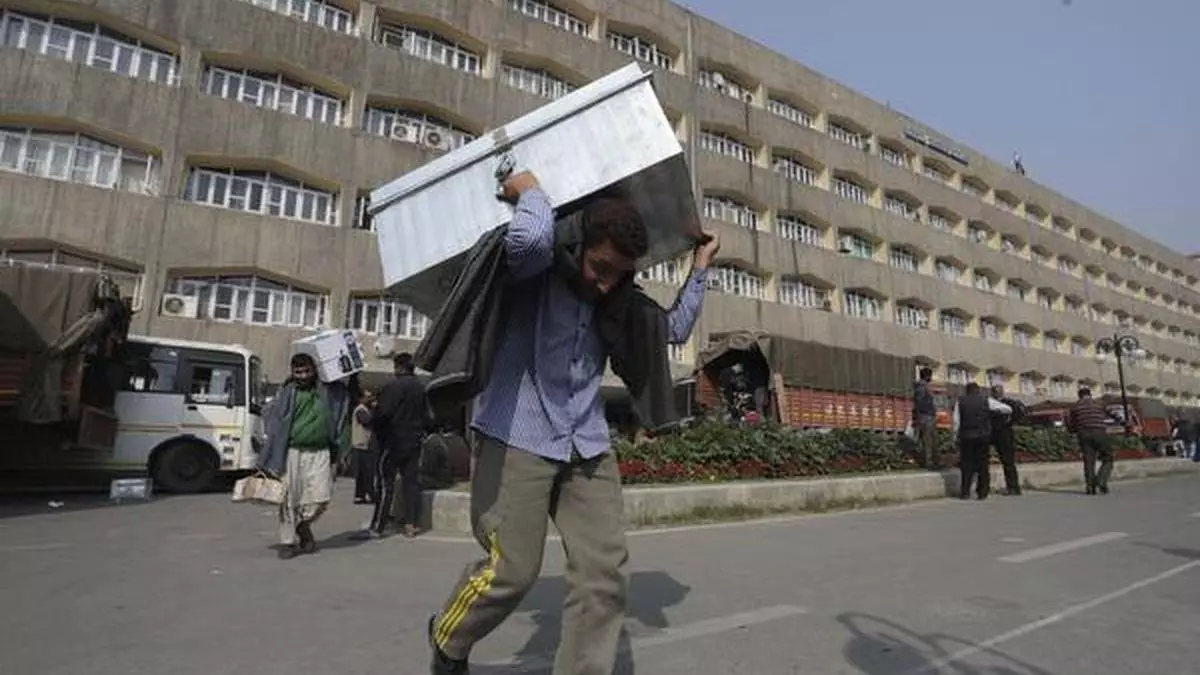In October 1987, as the Valley was readying for harsh winter, an order passed by Farooq Abdullah led the NC-INC government to heat up the political climate in the erstwhile state of Jammu and Kashmir. The contentious order halted the relocation of at least 20 departments to Jammu as part of the Darbar Move, a practice established by Maharaja Ranbir Singh some 152 years ago under which the civil secretariat used to operate six months each in Srinagar and Jammu.
The decision sparked a prolonged strike in Jammu, spurring the government to rescind the order.
The move was seen as part of the government’s bigger game plan to permanently scrap the Darbar Move and establish Srinagar as the sole capital of Jammu and Kashmir. After more than three decades, on June 30, 2021, Lieutenant Governor Manoj Sinha permanently abolished the tradition, citing the administration’s complete shift to the e-office system, which could result in saving the State exchequer ₹200 crore annually.
Although there were no major protests or strikes against the move this time, resentment has been evident on the streets of Jammu, where businesses are struggling through a rough patch.
A walk through Jammu city’s main bazaars starkly contrasts their usual bustle: many shopkeepers sit idle, waiting for customers.
“Once teeming with customers during this season, the markets remain subdued”, said Kuldeep Singh, a local businessman.
Prithvi Raj Gupta, former general secretary of the Chamber of Commerce and Industry, Jammu, said that the abolition of the Darbar Move had caused the business community huge losses.
“I can’t estimate the losses, but they must be in crores”, Gupta said.
He said that the traders’ community was always in favour of Darbar’s move.
“Whenever successive governments made attempts to abrogate the practice, people of Jammu fought against it”, he said.
Each winter, around 10,000 employees and their families move to Jammu, significantly boosting the local economy.
Reintroducing the practice
Calls for reintroducing the biannual practice of rotating the civil secretariat between Jammu and Srinagar intensified following Chief Minister Omar Abdullah’s separate meetings with members of civil society and the business community.
During these meetings, the Chief Minister reiterated his commitment to revive the dual capital system.
Dr Karan Singh, the son and successor of Hari Singh, the last Dogra ruling Maharaja of Jammu and Kashmir, congratulated Abdullah on his commitment to revive the age-old practice.
Terming the Darbar move as a brilliant project, Singh said it was particularly useful for Jammu because its economy depends heavily on the influx from Kashmir every winter.
Beyond economy ‘move’
Besides its economic significance, the bi-annual practice is largely viewed as a practical measure to reinforce the cultural and geographical ties among the people of Jammu and the Kashmir Valley.
Underlining this significance, Abdullah, in his recent address to the Chamber of Commerce and Industry, Jammu, said that “not everything can be measured in terms of profit and loss”.
“I understand that financially it makes no sense to have a twin capital system, but our history and emotions are tied to it”, Abdullah said.
He said governments would not work if everything were driven by loss and profit considerations.
